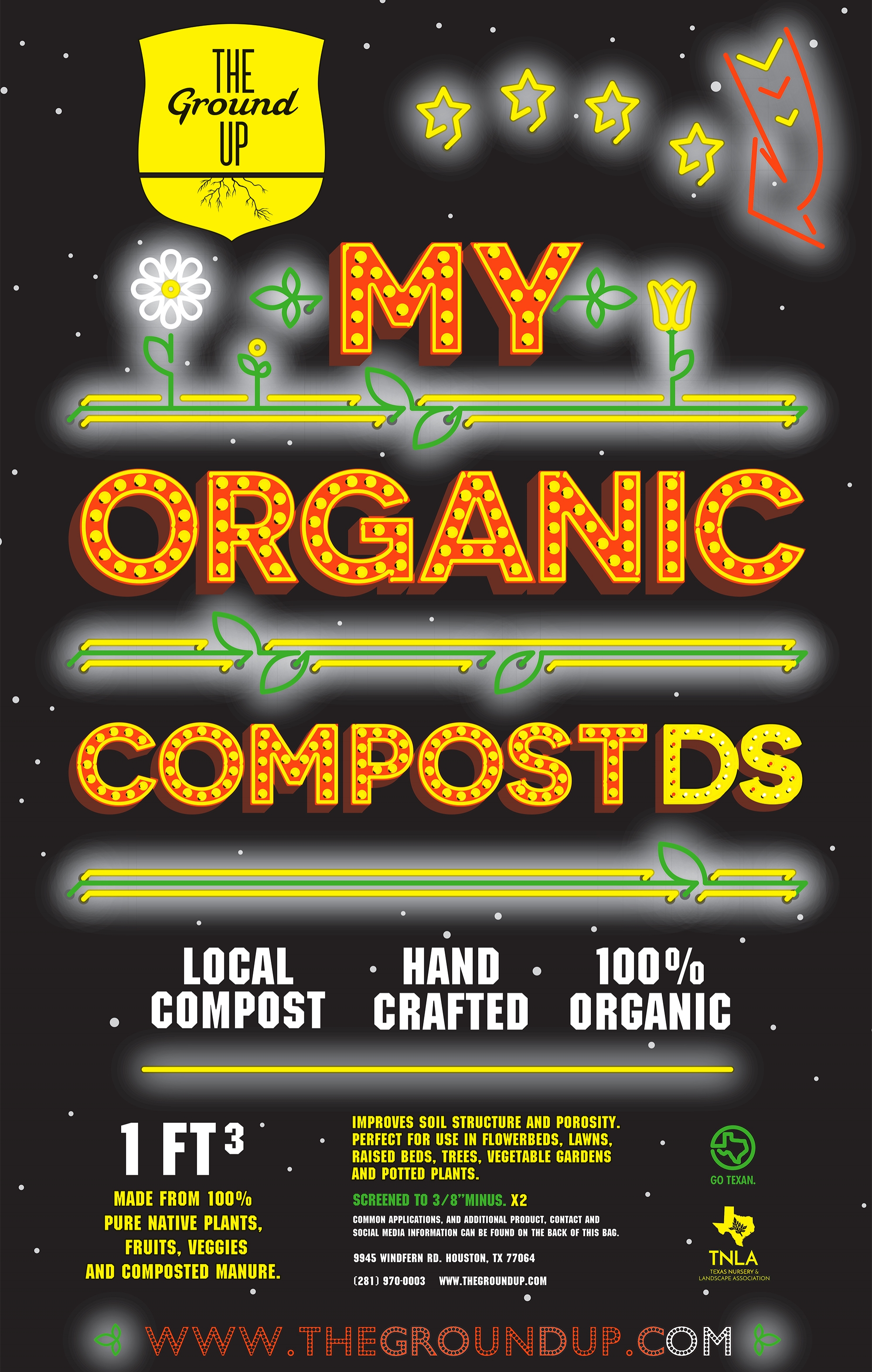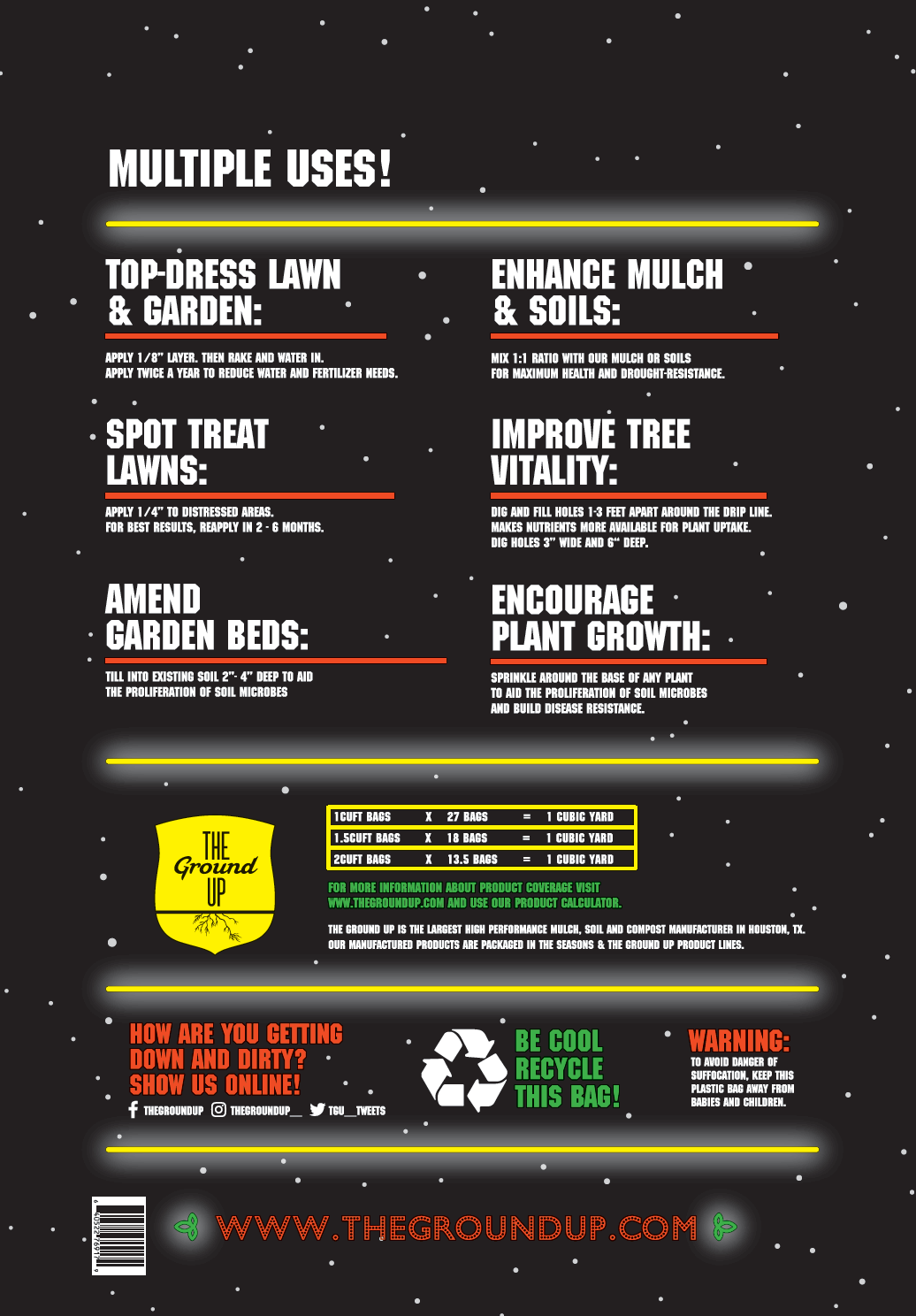The warmer months of July and August bring sightings of many different types of butterflies in the Houston area, we can see butterflies and moths almost year-round in Southeast Texas. Starting a butterfly garden can be as easy as planting a variety of colorful flowering plants to attract the feeding adult butterflies. With some planning, your butterfly garden can become a haven for all stages of the butterfly life cycle and multiple species of these beautiful pollinators.
Read MoreDig a Little Deeper!
In celebration of International Compost Awareness Week, I invite our readers to dig a little deeper into the many benefits of utilizing compost.
In a nutshell all composting is, is just nature’s way of recycling. It is a natural process of breaking down organic matter and turning it back into a rich nourishing substance. With this comes a lot of nutrition and benefits for your landscaping and gardening. Microorganisms produce a rich earthy substance called humus that is the key component in producing fine compost. Though most people think that compost is a fertilizer, it is actually a soil amendment. Fertilizers add nutrients to soil; while amendments improve the soil so that plants can make use of those nutrients. A simple way to distinguish the two is to remember that compost feeds the soil and fertilizer feeds the plant.
What Can Compost Do For You?
- Supply nutrients for plants by providing surfaces where nutrients can be held in reserve in the soil
- Reduces the need for chemical fertilizers.
- Facilitate better drainage by loosening soil structure
- Use less water; Store water in the soil
- Help increase air drainage
- Increase the activity and numbers of soil microorganisms
- Encourage earthworms
- Enhances the ability of vegetables to stand up to common diseases and may improve their flavor and nutrition
- Compost can benefit year-round
- Helps balance the pH of your soil
My Organic Compost DS: Goodness in a Bag
We celebrated this week by releasing our new "My Organic Compost DS" bag design. This double screened goodness will be available to you in a few weeks at any of our locations. We love it and we know you will too.


Why DS?
DS is made from leaf mold, wood, vegetative debris. We ground up the raw materials and make windrow piles by folding fruits and veggies into the piles. The juices from the fruits and veggie keep the compost with an optimum moisture content during the composting process. In addtion, we also populate the piles with a microbe pack that allows for better composting. The piles then are turned and once the pile is mature and ready for processing, we screen a 1st batch with a 3/8" screen. This product is now called Vegan Compost. The following step is to take batches of Vegan Compost and screen again. For every yard of Vegan Compost we double screen we get 60% of Finished DS product.
How can you use our Compost DS?
Our compost DS is probably one of the finest fungal compost products you will see anywhere in the US. It's perfect for top dressing, amending, tilling, mulching, spot treating and as a general use compost.
Compost Tip:
Spread about a half-inch to an inch of compost around your trees, shrubs, and/or your lawn, and in your annuals and vegetable gardens. In established gardens, spread the compost on top of the soil, where it will eventually seep into the ground below; or you can lightly fork it over. This can help improve the first 6–10 inches.
Questions about our Compost DS or just compost in general? Head on over to www.thegroundup.com/askusanything and ask away! We are happy to answer any questions you may have. If you'd like to see samples of our Compost DS, please visit one of our locations and we will show you this goodness packaged in a 1 cubic footbag!
#TGULab - The apples to apples on brown mulch. Is it worth it?
A few days ago I received a call from a friend asking for advice. My friend asked if I could come to his house to check out the mulch he purchased over the weekend at a box store. Knowing my friend likely got carried away by the "BIG" discount, I packed my bag with a sample of our double shredded hardwood mulch and made my way to his home. Upon my arrival I couldn't believe what I was looking at. I was in shock and disbelief that my friend had taken the time and effort to put this mulch down. He only spread a few bags of this mulch, but when I pulled my sample out of my backpack I could see the reaction of defeat in his face. Maybe the reaction wasn't defeat but better described as embarrassment.
If you are waiting for me to get to the punchline of this post, wait no more. Here it goes:
Mulches are made many different ways. They can be natural, dyed, made from shells, rubber, wood, lava, and different types of trees, barks, and organic and non-organic materials.
The ultimate goal of a mulch product is to feed, protect and beautify. You may opt to leave 2 of the 3 goals out and just beautify or you may want to protect and beautify. The reality is: If you are able to feed, you are also protecting and beautifying BUT if you are only beautifying then you are not feeding and you are likely missing the protection component.
If we compare apples to apples on brown mulch readily available in the market and look at all these physical characteristics and more specifically look at TGU's bulk hardwood mulch or TGU's The Seasons Hardwood mulch in bags VS the BROWN mulch sold at the big box store, this is what we get...... for pics and video visit www.facebook.com/thegroundup
TGU Hardwood Mulch: Composted vegetative waste, shredded once and composted then shredded a second time with a 1.5" screen. Small shred with composted fines that will ultimately incorporate into the soil system of your landscape.
VS Brown Mulch: Dyed wood with shred ranging between 1" to 6", lacking compost and missing the ability to break down and incorporate into your landscape's soil system. An all carbon product that will likely create a deficient environment for your plants and creates a nitrogen deficiency and does not allow for nutrient uptake of any root.
Why go through the hassle right? Find TGU's The Seasons at an Independent Garden Center - for a list of local businesses carrying TGU products visit http://thegroundup.com/retail/
